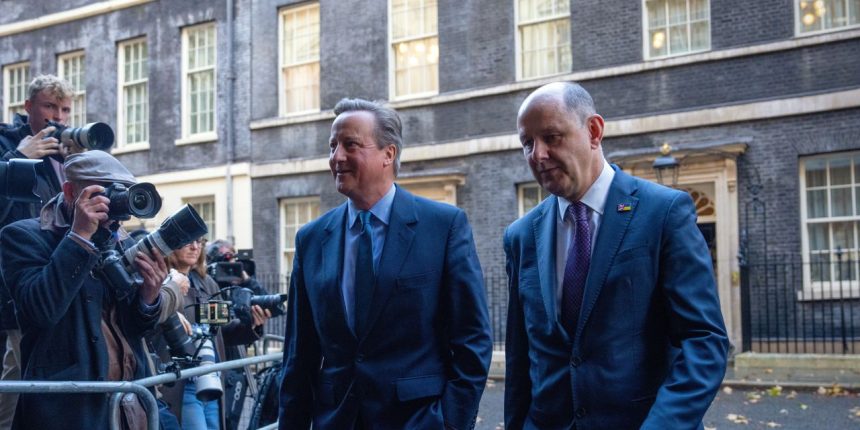The surprise return of former Prime Minister David Cameron as the U.K.’s new foreign secretary brings his work for the fallen Greensill Capital back to the limelight.
Greensill Capital was a company run by financier Lex Greensill that provided supply-chain financing. Supply-chain financing is meant to be a low-risk form of financing — paying out a seller’s claim, at a discount, and then collecting on that claim from the initial contractor.
In Greensill’s case, the firm had blue-chip clients including Ford Motor Co. and AstraZeneca, but also far riskier ones, such as the Gupta Family Group Alliance, which was connected to steel magnate Sanjeev Gupta. The firm collapsed in 2021, and the U.K. Serious Fraud Office has an ongoing criminal investigation into the Gupta Family Group Alliance and its financing arrangements with Greensill.
There were big names behind Greensill, notably Credit Suisse, which distributed funds from the securitized claims. The Swiss regulator found Credit Suisse “seriously breached” its supervisory obligations, and the trouble from Greensill played a role in its near-collapse that led UBS
UBS,
to buy it.
Cameron was an adviser for Greensill. A U.K. parliament report found Cameron “showed a significant lack of judgment” in using informal means — on one day making 19 calls, texts and emails — to lobby the government on Greensill’s behalf. The former prime minister was not successful in getting his client access to the COVID Corporate Financing Facility.
Cameron had a stake in Greensill, used corporate jets and earned what he called “a generous annual amount,” though a spokesman has denied a BBC program’s account that the total compensation was $10 million.
The committee also found Cameron relied on Greensill’s board “as a guarantee of its propriety and financial health, when arguably he should have taken a broader and more enquiring assessment of the business. There were signals available to Cameron at the time when he was lobbying the Treasury and others which might have led him to a more restrained approach.”
Read the full article here




